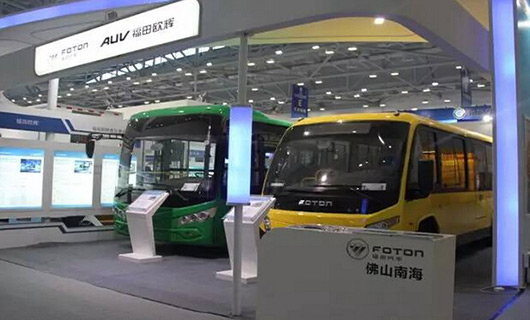On August 22-23, 2015, the first Advanced Equipment Manufacturing Investment Trade Symposium-West of the Pearl River was held in Zhuhai International Convention and Exhibition center. As the representative of new energy and energy-saving industry, Foton AUV Guangdong Company brings two new energy buses to the event, BJ6851 fast-recharging electric bus and BJ6650 fast-recharging electric mini bus.

The two AUV buses become eye catching on the event, especially F3—BJ6650 electric mini bus. As the first domestically developed micro-circulation bus, BJ6650 is colored in impressive yellow. Being delicate and elegant, the bus is targeted at public transport in densely populated urban communities. Thanks to its amazing agility, it connects subway stations and major bus stations with communities and easily solves citizen’s “last-kilometer-home” transport. Through fast-recharging technology, the bus can be fully recharged in an average period of time of 12-15 minutes and run for 150 kilometers. Measuring in only 6.5 meters, BJ6650 is capable of loading 36 passengers, fully meet the requirement of most connection routs.
Foton AUV F6—BJ6851 is a green bus specifically tailored for medium and small cities. It is also ideal for branch bus routes and suburban public transport. Despite its small size, its ultra long wheelbase gives its spacious interior space and the bus is capable of holding 56 passengers at maximum. What’s more, the bus can be fully recharged in an average period of time of 12-15 minutes, thus it does not require heavy investment in related infrastructure construction. It is also worth mentioning that its battery boasts a life expectancy of 8-10 years.